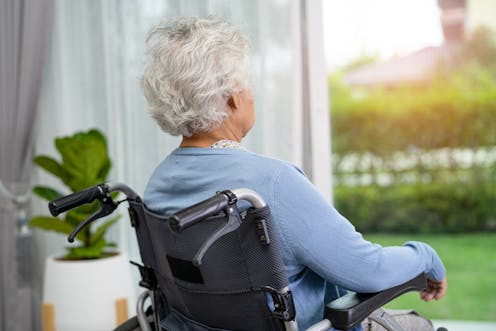Half of Australians in aged care have depression. Psychological therapy could help
- Written by Tanya Davison, Adjunct professor, Health & Ageing Research Group, Swinburne University of Technology

While many people maintain positive emotional wellbeing as they age, around half of older Australians living in residential aged care have significant levels of depression[1]. Symptoms such as low mood, lack of interest or pleasure in life and difficulty sleeping are common.
Rates of depression in aged care appear to be increasing[2], and without adequate treatment, symptoms can be enduring and significantly impair older adults’ quality of life.
But only a minority of aged care residents with depression receive services specific to the condition. Less than 3% of Australian aged care residents access Medicare-subsidised mental health services[3], such as consultations with a psychologist or psychiatrist, each year.

















